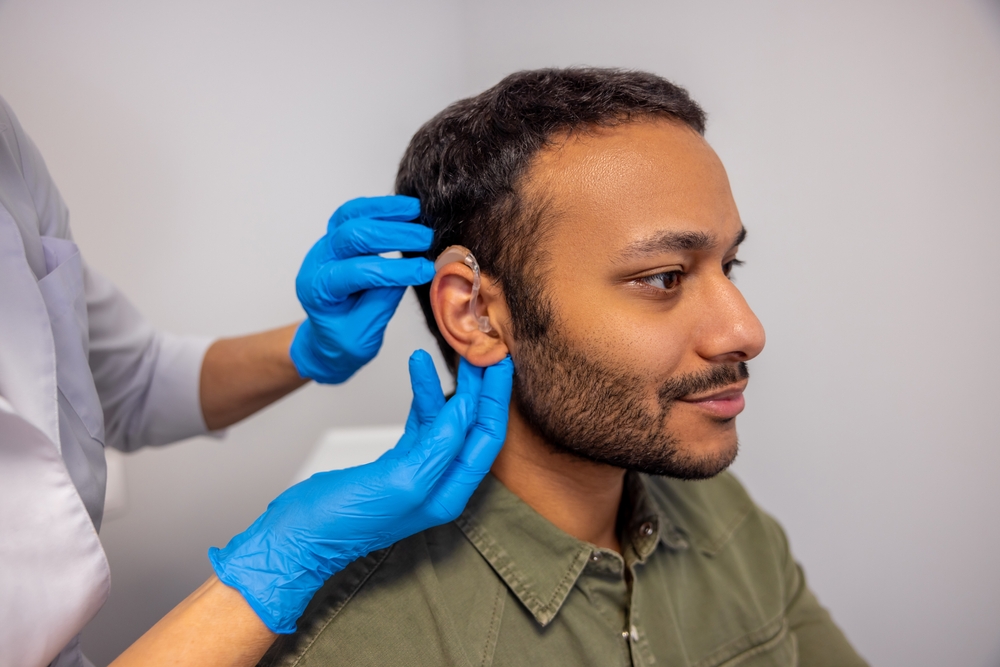Ear wax, medically known as cerumen, serves as your body’s natural cleaning and protection system for the ears. While some odor is normal, understanding when that smell signals a problem can help protect your hearing and overall ear health.
The science behind the smell
Board-certified ENT specialist Dr. Neil Bhattacharyya explains that ear wax contains a complex mixture of dead skin cells, sweat, and naturally occurring bacteria. This combination creates its characteristic scent, which varies among individuals based on their body chemistry and wax production levels.
When normal becomes concerning
While regular ear wax typically has a mild, waxy scent, certain changes in smell can indicate underlying health issues. Strong, unusual, or particularly unpleasant odors often serve as warning signs that shouldn’t be ignored.
Infection indicators
Ear infections rank among the most common causes of problematic ear wax odors. These infections typically occur when bacteria or viruses enter the ear canal, often following upper respiratory infections or exposure to contaminated water. The resulting smell often resembles rotting material or extremely sweaty clothing.
Understanding swimmer’s ear
This specific type of outer ear infection deserves special attention. Occurring when water becomes trapped in the ear canal, swimmer’s ear creates an ideal environment for bacterial growth. The resulting infection can produce distinctively foul-smelling wax along with pain and inflammation.
Excessive wax production
Some people naturally produce more ear wax than others, leading to potential buildup and stronger odors. Various factors influence this overproduction, including structural ear differences, certain autoimmune conditions, and the regular use of hearing aids.
Medical conditions and ear wax
Several underlying medical conditions can affect ear wax production and smell. Skin conditions like eczema may increase wax production, while autoimmune diseases can alter its composition. Understanding these connections helps in proper diagnosis and treatment.
The danger of perforated eardrums
A torn eardrum represents a serious condition that can affect ear wax smell and consistency. This injury allows fluid from the middle ear to mix with ear wax, creating unusual odors and potentially dangerous complications.
Fungal infection factors
Though less common than bacterial infections, fungal infections in the ear can create distinctive odors and require specific treatment approaches. These infections often occur in humid environments or after prolonged antibiotic use.
Foreign object complications
Sometimes, foreign objects lodged in the ear canal can create unusual smells that mimic problematic ear wax. These situations require professional removal to prevent damage and infection.
Safe cleaning practices
Proper ear cleaning proves crucial for maintaining healthy ear wax levels. Avoid using cotton swabs, which can push wax deeper into the canal and cause impaction. Instead, consider doctor-recommended cleaning methods and products.
Treatment options
When dealing with problematic ear wax, several treatment options exist. Over-the-counter solutions like Debrox can help manage excess wax, while prescription medications may be necessary for underlying infections.
Professional intervention
Knowing when to seek medical attention remains crucial. Strong odors, pain, hearing changes, or persistent discomfort warrant professional evaluation. ENT specialists can safely remove problematic wax and treat underlying conditions.
Prevention strategies
Maintaining proper ear health helps prevent problematic ear wax situations. This includes keeping ears dry after swimming, avoiding insertion of foreign objects, and regular check-ups with healthcare providers.
Long-term considerations
Chronic ear wax issues may indicate the need for ongoing management strategies. Working with healthcare providers to develop a long-term care plan can help prevent future complications and maintain optimal ear health.
Understanding ear wax and its potential problems helps individuals make informed decisions about their ear health. While some variation in ear wax smell is normal, significant changes or accompanying symptoms warrant professional attention. By staying aware of warning signs and maintaining proper ear care habits, you can protect your hearing and prevent serious complications.












